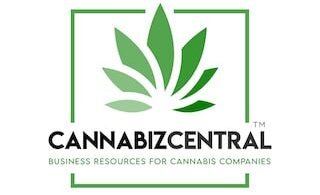Guidance on how to take CARES Act distributions from qualified plans
The IRS explained on Friday how qualified individuals can take coronavirus-related loans and distributions from eligible retirement plans (Notice 2020-50). Qualified individuals receive favorable tax treatment for those distributions under the Coronavirus Aid, Relief, and Economic Security (CARES) Act, P.L. 116-136.
Distributions: A coronavirus-related distribution is not subject to the Sec. 72(t) 10% additional tax (and it is also not subject to the Sec. 72(t)(6) 25% additional tax for certain distributions from SIMPLE IRAs). These distributions are generally includible in income over a three-year period, and, to the extent the distribution is eligible for tax-free rollover treatment and is contributed to an eligible retirement plan within a three-year period, will not be includible in income.
Plan loans: The CARES Act also increases the allowable plan loan amount under Sec. 72(p) from $50,000 to $100,000 and permits a suspension of payments for plan loans outstanding on or after March 27, 2020, that are made to qualified individuals.
Qualified individuals: A qualified individual is defined under the CARES Act as an individual:
- Who is diagnosed with the virus SARS-CoV-2 or with coronavirus disease 2019 (COVID-19) by a test approved by the Centers for Disease Control and Prevention (CDC) (including a test authorized under the Federal Food, Drug, and Cosmetic Act);
- Whose spouse or dependent (defined under Sec. 152) is diagnosed with COVID-19 by a test approved by the CDC (including a test authorized under the Federal Food, Drug, and Cosmetic Act); or
- Who experiences adverse financial consequences as a result of:
- The individual’s being quarantined, being furloughed or laid off, or having work hours reduced due to COVID-19;
- The individual’s being unable to work due to lack of child care due to COVID-19; or
- The closing or reducing hours of a business owned or operated by the individual due to COVID-19.
In addition, under the authority granted to the IRS to add other factors to define a qualified individual, the notice adds to the qualified individual definition individuals who suffer adverse financial consequences as a result of:
- Having a reduction in pay (or self-employment income) due to COVID-19 or having a job offer rescinded or the start date for a job delayed due to COVID-19;
- The individual’s spouse or a member of the individual’s household (as defined below) being quarantined, being furloughed or laid off, or having work hours reduced due to COVID-19, being unable to work due to lack of child care due to COVID-19, having a reduction in pay (or self-employment income) due to COVID-19, or having a job offer rescinded or the start date for a job delayed due to COVID-19; or
- Closing or reducing hours of a business owned or operated by the individual’s spouse or a member of the individual’s household due to COVID-19.
In applying these additional factors, a member of the individual’s household is someone who shares the individual’s principal residence.
Reporting: Notice 2020-50 also provides guidance on how plans may report coronavirus-related distributions and how individuals may report these distributions on their individual federal income tax returns. For example, individuals may elect to report their coronavirus-related distributions ratably over a three-year period or include the full amount in income in the year of distribution by making an irrevocable election in their tax return for the year of distribution.
Rollovers: The notice also explains how individuals may roll over eligible funds to a qualified retirement plan or treat the distribution as a loan to repay over a three-year period.




